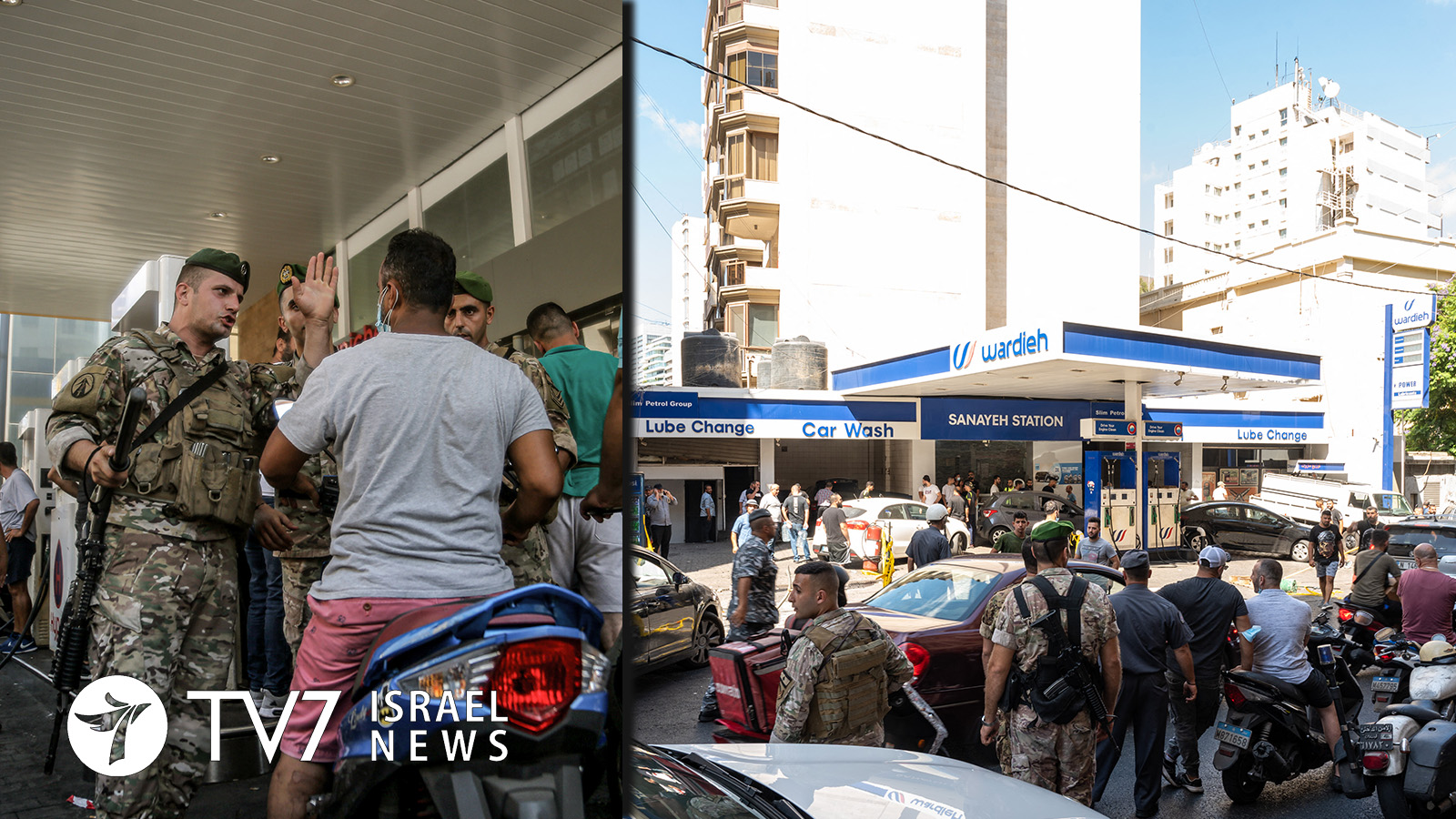Severe gasoline and diesel shortages in Lebanon are leading to daily clashes, that have ignited sectarian tensions between Shi’ite Muslim and Christian villages in the southern part of the country. The latest crisis is the latest concern as the Middle Eastern nation continues its descent into chaos after two years of financial meltdown.
By Erin Viner
The county’s economic collapse that began in 2019 has plummeted to new depths, with fuel scarcity now crippling essential services and causing numerous security incidents related to disputes over the acquisition of gasoline.
The Lebanese military was forced to intervene in a weekend clash involving the Christian village of Maghdouche and Shi’ite Ankoun that left 6 people wounded, said a security source said. The troops were deployed after villagers blocked roads and burned trees.
Much of Lebanon has been brought to a standstill in the latest phase of its economic crisis, marked by the devaluation of the national currency by over 90% in two years that has forced more than half of the country’s population into poverty.
Lebanese officials are now issuing the strongest warnings yet about the gravity of the situation. The state’s most senior Sunni Muslim cleric, Grand Mufti Sheikh Abdul Latif Derian, said on Friday that the country is headed toward complete collapse unless immediate action is taken. “We fear that … the patience of Lebanese will run out and that we will all fall into the furnace of complete chaos, manifestations of which we have started to see in all fields,” Sheikh Derian said during a Friday sermon in comments carried by the National News Agency.
“The matter requires serious and immediate treatment,” he said. “Otherwise, we are truly going to what is worse and to complete collapse,” he said, noting clashes that have flared up in some parts of Lebanon.
This sentiment was echoed by Major General Abbas Ibrahim, who heads of one of the main security agencies, who ordered his officers to stand firm in the face of the crisis amid heightening concern over ensuing chaos if the state collapses.
Lebanese politicians have failed to agree on a new government in a nation that has was hobbled back together after a 1975-90 civil war and is still deeply divided by sectarian and factional rivalries. The country has been without a functioning government since the caretaker government of former Prime Minister Hassan Diab resigned en masse in the wake of last year’s devastating explosion in the Beirut Port. Prime Minister-Designate Najib Mikati, who is the third leader trying to form a cabinet, said on Friday that grave hurdles are obstructing his attempts.
President Michel Aoun, a Maronite Christian, and Prime Minister-Designate Mikati, a Sunni Muslim, are at odds over a cabinet to replace the government. The political paralysis was further mired down by a dispute between Aoun and a group of former prime ministers, including Mikati and Saad al-Hariri, over the probe into the Beirut blast.
Mikati was appointed premier after Hariri abandoned his 9-month-long bid to form the government, saying he could not agree with Aoun, and accusing him of seeking effective veto power in cabinet. Aoun, an ally of the heavily armed, Iran-backed Shi’ite group Hezbollah which is under U.S. sanctions.
Hezbollah was founded by Iran’s Islamic Revolutionary Guards Corps (IRGC) in 1982. The group is by far the most powerful faction in Lebanon, where it has been part of the ruling system for years.
Hezbollah leader Hassan Nasrallah provoked controversy by claiming that fuel shipments from his group’s patron Iran are on their way to help ease shortages.
Hezbollah’s opponents say the declaration, followed by announcements of two further Iranian fuel shipments for Lebanon, has further undermined the authority of the state and exposed Lebanon to the risk of U.S. sanctions.
Voicing strong disapproval of any actions that would harm Lebanon’s interests, Prime Minister-Designate Mikati responded to the Hezbollah statement by saying that “We will not let anyone lead us to new sanctions.”
The Caretaker Energy Minister Raymond Ghajar announced yesterday that the government has received no request for fuel to be imported from Iran – in an apparent confirmation that Hezbollah bypassed the state with its move.
“Our role is restricted to import permits, we did not receive a request for permission,” said Ghajar. When asked if this meant the ship was coming without permits, Ghajar said: “No. We do not have information. Permission was not requested from us. This is all I am saying.”
There have so far been no reported deliveries of Iranian oil to Lebanon, and Hezbollah has not revealed details of any of the expected shipments. The Tanker Trackers monitoring agency of oil shipment and storage said that while satellite imagery shows the second and third tankers have yet to set sail, that “the first tanker should be in the southern section of the Red Sea by now.”
Parliament Speaker Nabih Berri, a Shi’ite Muslim ally of Hezbollah and one of the most powerful figures in the state, said on Tuesday he welcomes any support – including from Iran – to help Lebanon through its crisis.
The World Bank has deemed Lebanon’s meltdown as one of the worst collapses ever recorded, rooted in decades of governmental corruption and the unsustainability of how the state had been financed.
